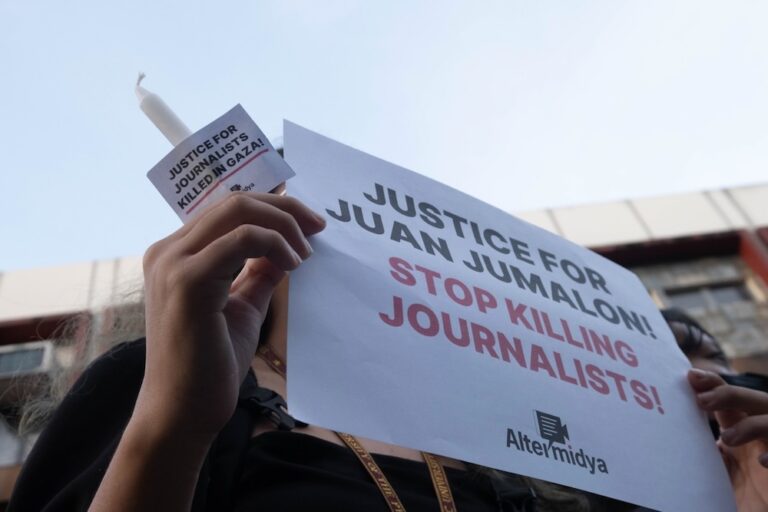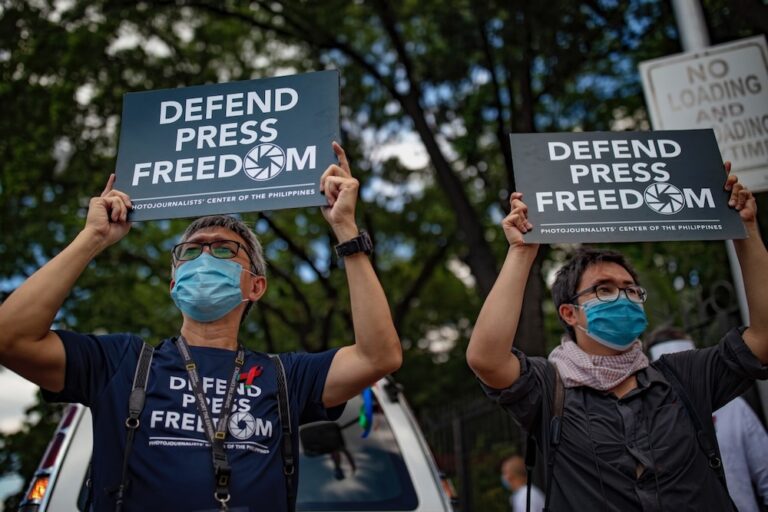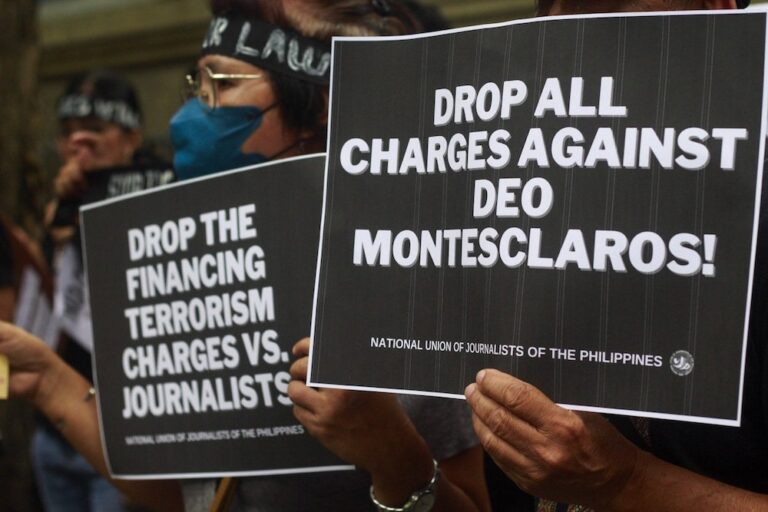(CMFR/IFEX) – A radio broadcaster is in critical condition after being shot in General Santos City, South Cotabato on 4 August 2008, at approximately 4:30 p.m. (local time). A gunman riding pillion on a motorcycle shot Dennis Cuesta of dxMD-Radio Mindanao Network (RMN) as he was walking along a public thoroughfare in a crowded area […]
(CMFR/IFEX) – A radio broadcaster is in critical condition after being shot in General Santos City, South Cotabato on 4 August 2008, at approximately 4:30 p.m. (local time).
A gunman riding pillion on a motorcycle shot Dennis Cuesta of dxMD-Radio Mindanao Network (RMN) as he was walking along a public thoroughfare in a crowded area near a shopping mall. Cuesta, who is now in the intensive care unit of a local hospital, had just come from an RMN promotional program. Police said Cuesta was shot five times with a .45 caliber pistol. He sustained wounds to the head and near the spinal column. The attending doctor said that should Cuesta survive, half of his body would be paralyzed. Cuesta is 38 and has seven children.
Dodong Solis, RMN assistant area manager for Mindanao believes that the assassin was a hired killer. “The attack was very professional,” Solis said.
Colleagues believe that the attempted murder is related to Cuesta’s work as a journalist.
Solis said that barely a month before the incident, in his radio program Sumbong at Aksiyon (Grievance Desk), Cuesta had addressed a complaint submitted by an individual whose village water supply was contaminated. Cuesta subsequently received a telephone call from the secretary of the association believed to be responsible for the contamination, who angrily reprimanded Cuesta for his report. Solis said that the City Health Council investigated the association as a result of Cuesta’s broadcast.
Alex Joson, RMN station manager for General Santos, said that after Cuesta’s expose on the water contamination, Cuesta began receiving death threats and suspicious individuals were seen roaming the vicinity of the station.
Solis also said that Cuesta had been advised by his wife to resign from his job as radio broadcaster or to request reassignment.
“That incidents like this could happen in broad daylight is a painful reality here. This is very saddening,” Solis said. “I hope incidents like this will make the government work to ensure we can do our work safely,” Solis added.
Seventy journalists and media practitioners have been killed in the line of duty since 1986 in the Philippines. Five out of the 70 were killed in General Santos.


